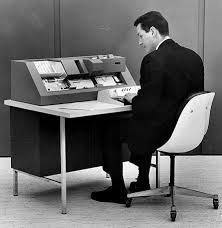The pricing of Bordeaux all begins during the en primeur season of France, occurring annually in early April. The en primeur season is quite the event2 for oenophiles. Wine merchants and renowned experts taste young Bordeaux that have yet to be bottled, and in many cases have just finished fermenting5. The marks and criticism bestowed by Robert Parker and the like of the wine community regarding a wine that will undoubtedly change complexion and fortitude during the remaining time in the barrel of course has sweeping changes in the financial markets.
The volume of Bordeaux being exported to China has increased nearly 400% over the last decade with the prices following suit. Last year, China passed the U.S. to become Bordeaux's largest non-European export market. The demand for red wine in China, Bordeaux in particular, has transcended the perfunctory bottle with dinner and is an irrefutable symbol of status.

So, thanks China.
Really, thank you for this demand-pull inflation. Collateralized Bordeaux Obligations (CBO) are going through the proverbial chateaux roof and a metaphorical and literal bubble seems to be developing. While many wines are increasing in value nearly 40% have decreased in value from their en primeur pricing. While the speculation is not only with the quality of that year’s harvest, the speculation is also on the quality of the harvest for the next few years. New superior vintages of the substitute good could appear and dramatically drive down the prices. Besides Bordeaux as wines from other regions develop and sell at a lower price the value over the replacement option decreases and pushes down the price of Bordeaux to a rational equilibrium.
And now here are some lines from my upcoming novel:
Have you seen Steven lately?
--Not recently, how is his export business?
I can’t believe how ostentatious he is. He always unbuttons the last button on the cuff of his suit jacket. I can’t stand it.
--I don’t care for that one bit.
It’s quite troubling really.
1 I subsist on Bordeaux.
2 When Tom Baker, the fourth incarnation of Dr. Who3, was cast costume designer “James Acheson picked up a load of wool and asked a knitter called Begonia Pope to knit a scarf for Tom. She inadvertently used all the wool Acheson had given her, resulting in a scarf that was some twenty feet long.” While enjoying the internet I came upon a website4 that details the history of Baker’s signature scarf as well as detailed instructions on how to create your own. The website lists the notable scarf events to knit the scarf. I desperately hope scarf event is the proper term for a set of scarf instructions. I do not have the faculty to create such scarf.
3 The producer who had the idea that the Doctor suddenly had to change forms just every so often, or when there was probably a contract dispute, was brilliant. I think we can all agree that David Tennant was an awesome Doctor.
4 http://www.doctorwhoscarf.com/index.php
5 I made a barrel of wine with two of my friends one summer. We did it in my basement, which ultimately led to our downfall as we did not account for the effect the decreased temperature has on the time it takes proper fermentation to occur. We also kept dropping things into the barrel and had to fish them out with our hands.

